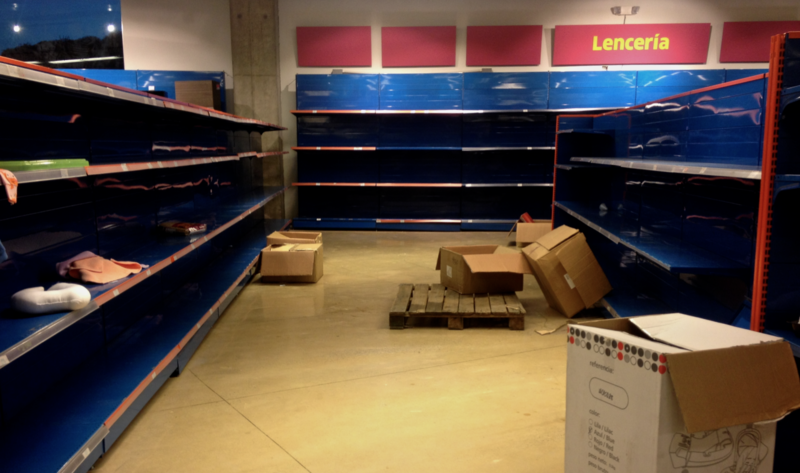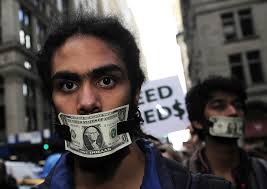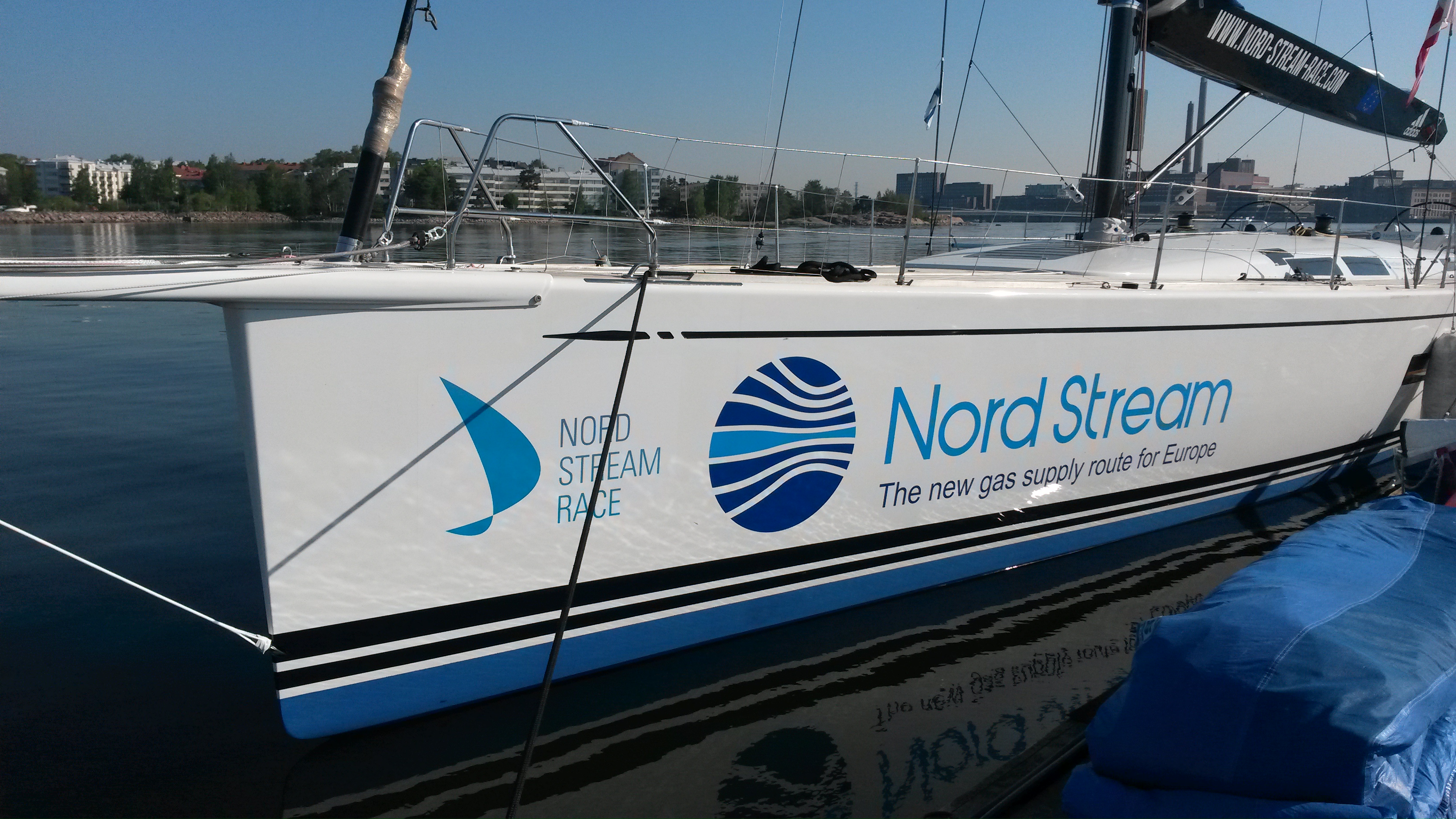Venezuela is a tropical country blessed with vast, fertile lands, and yet, it is unable to feed itself. The country is currently dealing with massive supply shortages of everyday items like toilet paper and food staples. There is scarcity of basic goods and medicine akin to times of war. Citizens are forced to line up for hours merely for the chance to buy these items and often go home empty handed. Venezuelans regularly structure their day around la cola (the line). The lines are mostly filled with women many of whom are single mothers. Rampant corruption in the scattered distribution network means price-controlled items are rerouted to the black market or purchased by bachaqueros, who resell them at marked-up prices.
The country has the largest proven oil reserves in the world, and yet, it is plagued by rolling blackouts due to the energy shortages. Hospitals can barely function, unable to run dialysis machines and incubators. Blackouts recently knocked out respirators in a maternity ward and seven newborns died in one day. They are also making it easier for criminals to operate under the cover of darkness, in an already violent nation with the second highest murder rate in the world. The most likely scenario is the most terrifying: generalized looting. Many worry the police and the army will shoot the mob, as they did during the 1989 revolt. Venezuelan President, Nicolas Maduro, however, has refused to allow international humanitarian organizations to bring in supplies.
The government has sought to soften the impact of the economic crisis by rising wages and printing more bolivars (the national currency). This is not a solution, but a recipe for inflation. The International Monetary Fund (IMF) has predicted that inflation in Venezuela will hit 720 per cent this year. That might be an optimistic assessment some local economic analysts expect the rate to reach as high as 1200 per cent. With the country’s largest denomination note, the 100-bolivar bill, now worth about 10 U.S. cents on the free market, many Venezuelans must make daily trips to the bank already. Part of this is due to the government desire to stay current with outside creditors and avoid the first default in Venezuela’s history. They are not interested in asking creditors and the IMF for help, which will likely come with conditions.
Venezuela saw economic growth and prosperity under Hugo Chavez’s presidency due to oil selling at record high prices. Oil fuelled Chavez’s self styled Bolivarian Revolution and the larger-than-life leader could promise anything. The result was the poverty level being cut in half, extreme poverty dropped by 70 percent, and free healthcare and education programmes began to rival many western nations. But he also overspent, built up a multi-billion dollar debt and failed to diversify the economy or invest properly in the state-run oil and gas company, Petroleos de Venezuela or PDVSA.
Venezuela has the largest proven oil reserves in the world, only Russia and Iran are sitting on more overall energy resources. The country relies on oil for 95 percent of its revenue, and imports almost everything it consumes. Now as oil prices have plummeted to record lows, a dire situation was made even worse. The government has run out of money to pay for imports, and to service its substantive debt repayments. Some years ago, the country did diversify its electricity supply to rely more on renewables, and hydroelectric power now supplies 60 percent of the country’s energy. Ordinarily, diversifying away from fossil fuels is a smart move. But the country experienced a drought in 2010 and again even more devastatingly this spring. Thanks to a combination of El Nino and global warming, the dams are dry.
Venezuela is close to becoming a failed state and its leadership is doing little to alleviate the problems, choosing to place blame for everything, including crime, on the opposition. Nicolás Maduro, Chavez’s appointed successor, flatly refuses to allow a recall referendum against him this year, as the opposition demands and the constitution allows. The President has responded with what critics call a growing populist authoritarianism. He declared a state of emergency that has allowed him to throw critics into jail, undercut the independent press and suppress the opposition in the National Assembly. Maduro doesn’t want elections of any type, either the recall vote or elections for governors. Some believe he would rather lose power in a coup, than through an opposition referendum. “Then Maduro could maintain the narrative that they are victims of a plot, and not rejected by their own people,” said Phillip Gunson, a Caracas-based analyst with the International Crisis Group
The secretary general of the Organization of American States (OAS), Luis Almagro, requested an emergency meeting to consider expelling Venezuela, saying that “grave alterations of democratic order” had been committed by the government. The OAS will decide on June 23, 2016 whether to sustain Almagro’s initiative. A suspension would be a further setback and embarrassment, as the country would be barred from all participation in the organization and could face economic and diplomatic sanctions from other members.
The government’s strategy, as far as one can infer from its actions, is to resist and wait for higher oil prices or a new big loan from China. Back when China’s appetite for oil and commodities seemed endless, the Asian nation bolstered its influence in Latin America through funding deals with a number of countries. China recently announced eased terms on its existing loans to Venezuela, roughly $50 billion. But, like other foreign powers, China is reluctant to grant new loans to the Venezuelans, possibly because of worries about Maduro’s political longevity.
Photo: “Venezuela Shortages” (2014), by ZiaShare via Wikimedia Commons. Licensed under CC BY-SA 3.0.
Disclaimer: Any views or opinions expressed in articles are solely those of the authors and do not necessarily represent the views of the NATO Association of Canada.




